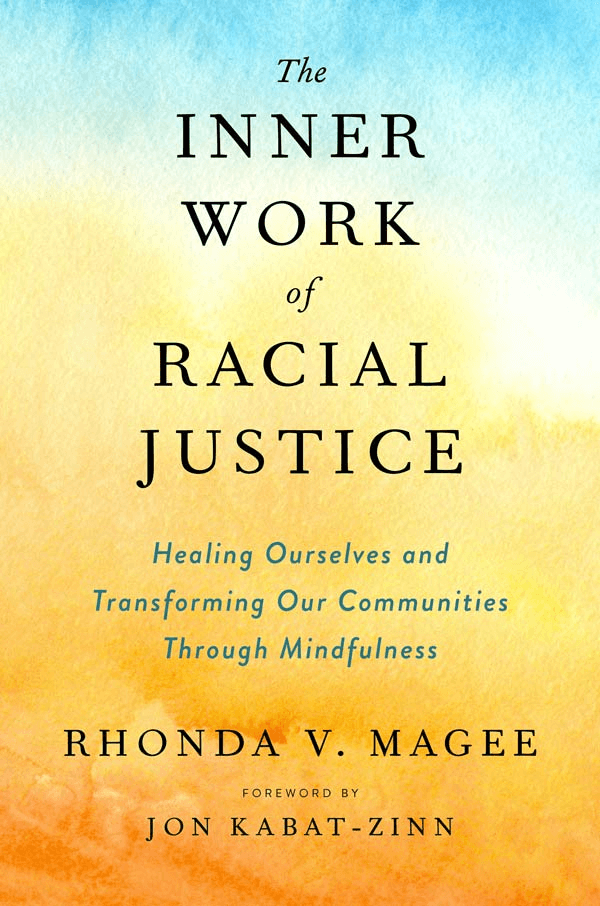

Antiracism Reading Group : The Inner Work of Racial Justice
Rhonda Magee’s seminal text, The Inner Work of Racial Justice, is the June 2021 selection for the Antiracism Reading group.
“Law professor and mindfulness practitioner Rhonda Magee shows that the work of racial justice begins with ourselves. When conflict and division are everyday realities, our instincts tell us to close ranks, to find the safety of our own tribe, and to blame others. The practice of embodied mindfulness–paying attention to our thoughts, feelings, and physical sensations in an open, nonjudgmental way–increases our emotional resilience, helps us to recognize our unconscious bias, and gives us the space to become less reactive and to choose how we respond to injustice.
For victims of injustice, embodied mindfulness calms our fears and helps us to exercise self-compassion. Magee shows us how to slow down and reflect on microaggressions–to hold them with some objectivity and distance–rather than bury unpleasant experiences so they have a cumulative effect over time. She helps us develop the capacity to address the fears and anxieties that would otherwise lead us to re-create patterns of separation and division.” https://www.rhondavmagee.com/my-book/
Please join us as we consider how to apply these mindfulness techiniques to our work as therapists and counselors.

